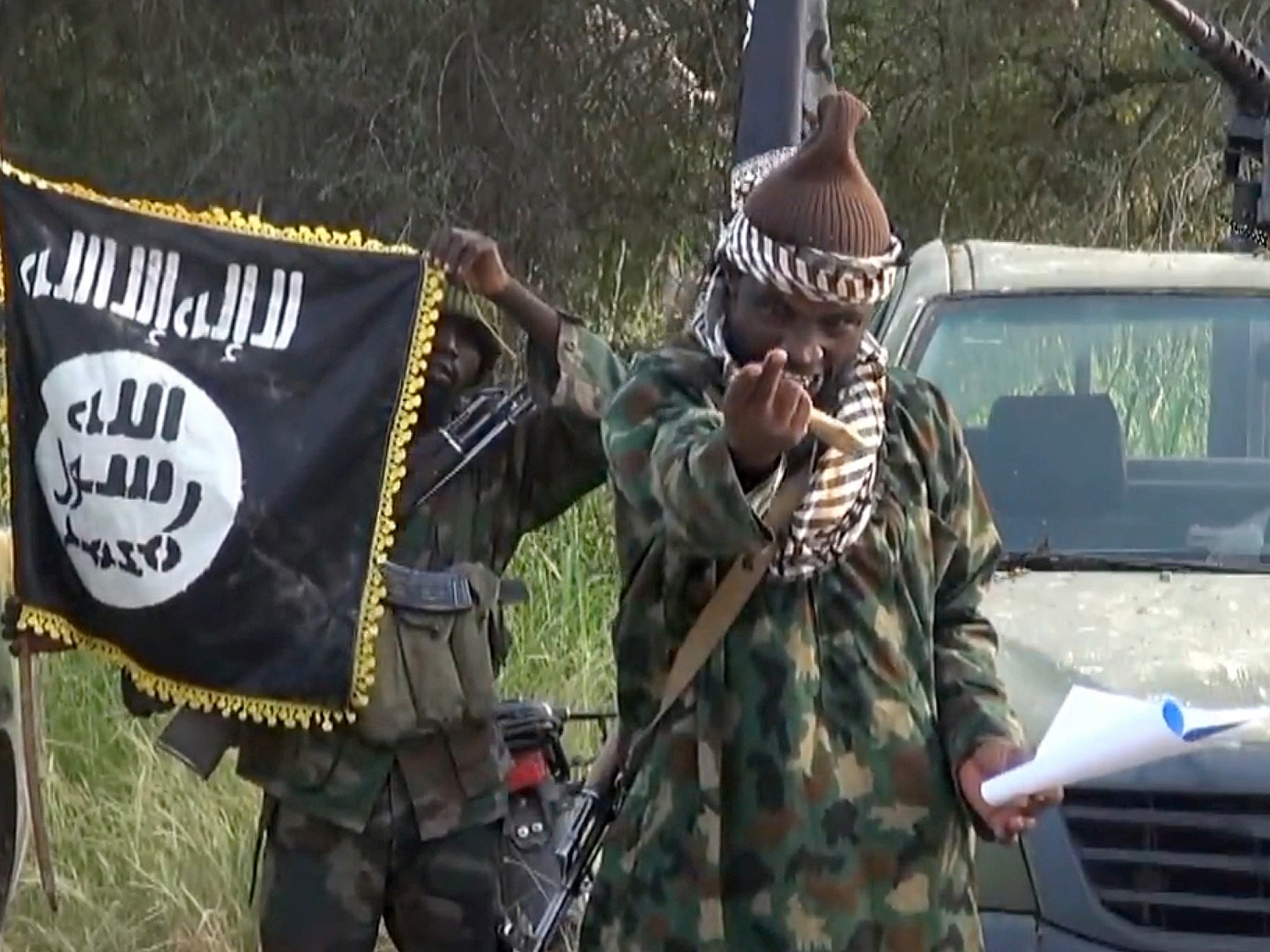Boko Haram: One in five suicide attacks carried out by children, says Unicef
More than 75 per cent of children involved in the attacks are girls

Your support helps us to tell the story
From reproductive rights to climate change to Big Tech, The Independent is on the ground when the story is developing. Whether it's investigating the financials of Elon Musk's pro-Trump PAC or producing our latest documentary, 'The A Word', which shines a light on the American women fighting for reproductive rights, we know how important it is to parse out the facts from the messaging.
At such a critical moment in US history, we need reporters on the ground. Your donation allows us to keep sending journalists to speak to both sides of the story.
The Independent is trusted by Americans across the entire political spectrum. And unlike many other quality news outlets, we choose not to lock Americans out of our reporting and analysis with paywalls. We believe quality journalism should be available to everyone, paid for by those who can afford it.
Your support makes all the difference.Boko Haram’s use of child suicide bombers has increased 10-fold in the past year, a new report has warned.
Nearly one in five suicide attacks orchestrated by the Islamist group are now carried out by children who are often drugged, according to a Unicef report, which also says more than 75 per cent are performed by girls.
The report, Beyond Chibok, released two years after Boko Haram abducted 276 schoolgirls in the area, shows that the number of children involved in suicide attacks in Nigeria, Cameroon, Chad and Niger increased from four to 44 in 12 months.
Further data from the report showed that in the two years to February 2016, a total of 21 attacks carried out in Cameroon involved children. A further 17 attacks in Nigeria used children, as did two in Chad.
Around 2,000 girls and boys are thought to have been kidnapped by Boko Haram in the past two years, with many used as cooks, sex slaves, and fighters.
But Boko Haram’s use of children as suicide bombers has created an atmosphere of fear and suspicion in Nigeria and the surrounding areas involved in the conflict, the report says. Children who have managed to escape from the terrorist group or who have been released by them are often seen as security threats as a result.
“Let us be clear: these children are victims, not perpetrators,” said Manuel Fontaine, Unicef Regional Director for West and Central Africa. “Deceiving children and forcing them to carry out deadly acts has been one of the most horrific aspects of the violence in Nigeria and in neighbouring countries.”
The atmosphere of fear has had a particularly devastating effect on the girls who have survived captivity and sexual violence at the hands of the terrorist group, the agency said, while the children who have been born as a result of sexual violence perpetrated by Boko Haram are often victims of stigma and discrimination in their villages.
Around 1.3 million children have been displaced since the conflict began and 1,800 schools have been closed and left damaged, looted, burned down or have been used as a shelter by displaced people.
Join our commenting forum
Join thought-provoking conversations, follow other Independent readers and see their replies
Comments